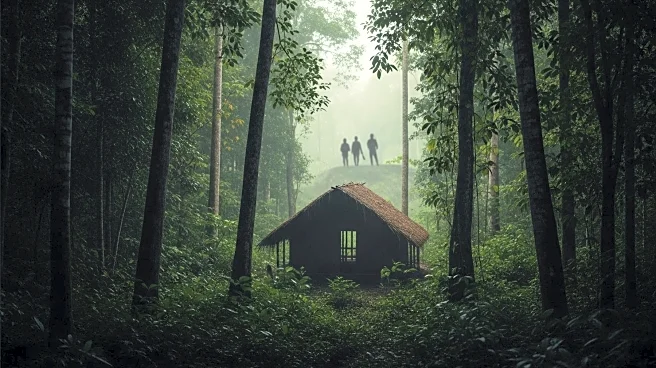What's Happening?
The Mashco Piro, one of the largest uncontacted tribes in the Amazon, is experiencing increased encounters with outsiders due to logging operations near their territory. Activists warn that these interactions pose a grave threat to the tribe, potentially leading to violence or the spread of diseases to which they have no immunity. The tribe's ancestral lands have become more active with industrial activity, raising concerns about their safety and the preservation of their isolated lifestyle. The Forest Stewardship Council has ordered a halt to logging operations, but reports suggest continued activity.
Why It's Important?
The situation highlights the challenges of balancing economic development with the preservation of indigenous cultures and ecosystems. The increased encounters with the Mashco Piro underscore the risks faced by uncontacted tribes, including potential cultural disruption and health threats. The issue raises ethical questions about the rights of indigenous peoples and the responsibilities of governments and corporations in protecting vulnerable communities. The global community's response to such situations can influence policies on indigenous rights and environmental conservation.
Beyond the Headlines
The encounters with the Mashco Piro reflect broader themes of cultural preservation and the impact of globalization on isolated communities. The situation prompts discussions on the ethical considerations of contact with uncontacted tribes and the potential consequences for their way of life. It also highlights the role of international organizations and advocacy groups in raising awareness and promoting sustainable practices. As industrial activity continues to encroach on indigenous lands, the need for effective protection measures becomes increasingly urgent.










